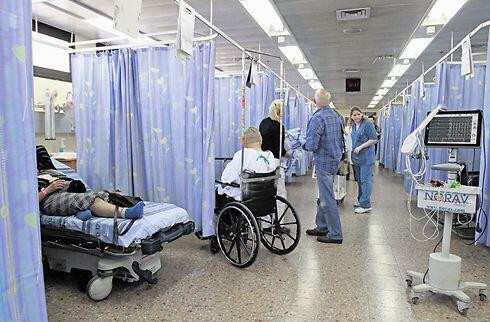Getting your Trinity Audio player ready...
Israel’s Center for Higher Education (CHE), along with its Health and Finance Ministries, approved a motion to bar foreign students from studying medicine at Israeli institutions.
The decision followed a 2018 recommendation by the CHE, which found that many Israelis were going to Europe for their studies after not being accepted into Israeli programs.
Israel suffers from a shortage of physicians rating it low in the ratio of doctors per patients among OECD members.
More than 2,500 medical interns walked out hospitals last year in protest of working conditions, that include long-hours on shifts, claiming they were unable to provide adequate care due to exhaustion.
Tel Aviv University’s (TAU) Sackler Faculty of Medicine, Ben-Gurion University's (BGU) Faculty of Health Sciences in the southern city of Be’er Sheva, and the Technion-Israel Institute of Technology's Rappaport Faculty of Medicine in Haifa, northern Israel will not be allowed to accept foreign students.
The graduating class of 2026 will be the last for foreign medical students who traveled to Israel to earn their four-year MD degrees.
Since 1977, TAU graduated some 2,300 foreign doctors; BGU had an international program for 30 years, and the Technion had one for some 20 years.
The courses have been a considerable source of income for medical centers.
“It’s with the deepest regret that I must inform you that the Israeli government has directed all foreign medical programs… to stop accepting new students,” read a letter sent to all of TAU’s foreign medical students from the university’s executive dean, Dr. Stephen Lazar.
“This political decision was made… to increase the availability of seats in Israeli medical schools for the Hebrew programs, so that many Israeli students will not have to travel abroad for their medical education,” the letter continued.
BGU president Prof. Daniel Chamovitz told The Jerusalem Post: “There was no choice. We need more Israelis to study medicine here.”




